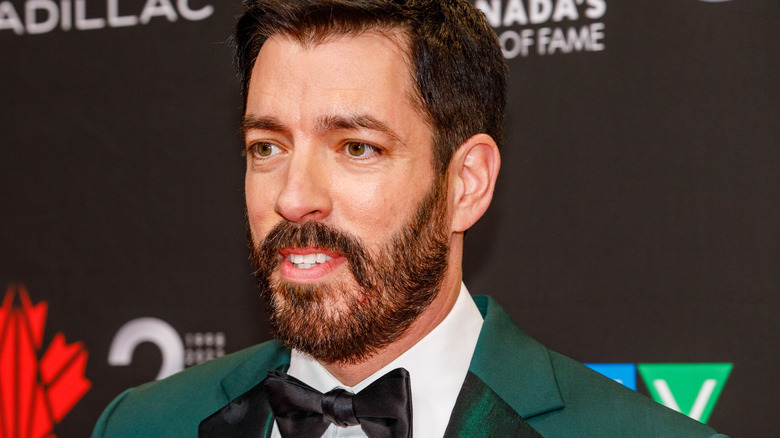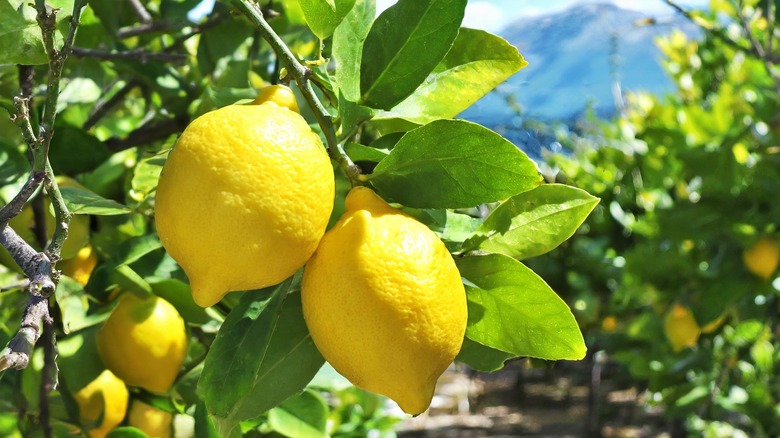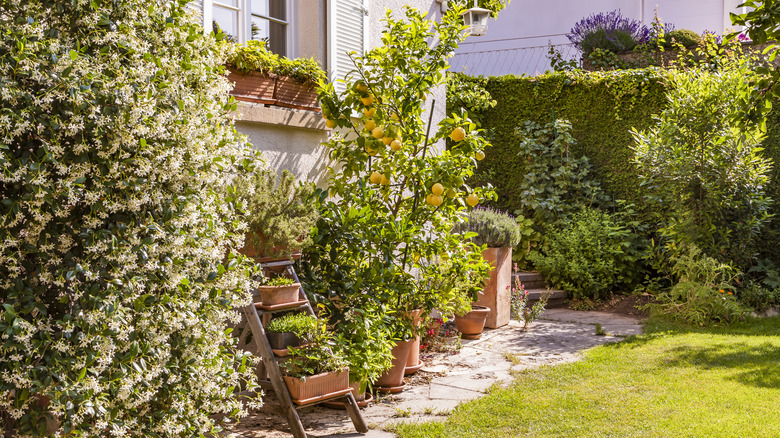The Citrus Tree That Drew Scott From The Property Brothers Recommends For Backyards
Drew Scott of HGTV's "Property Brothers" knows a thing or two about landscapes. Whether he's designing outdoor spaces for the friends of celebrities on "Celebrity IOU" or creating his own backyard oasis at his forever home, there are certain citrus trees Scott keeps coming back to again and again. Lemon trees (Citrus x limon) are a go-to for him, thanks to their preference for warm climates, great fruit production, and the ability of many varieties to stay small.
Scott and his family in Los Angeles, California, so it's no surprise that lemon trees are an essential part of their landscaping. Originally native to India, lemons have become an essential part of the landscaping and cuisine around the Mediterranean, parts of Asia, and warmer parts of North America. In the United States, lemons are generally only hardy in USDA zones 9 through 11, making them perfect for a southern California climate. Of course, gardeners in colder climates or those without big outdoor spaces can also grow a lemon tree indoors.
Caring for lemon trees
Lemon trees thrive in loamy and sandy soils with good drainage, and appreciate slightly acidic soil, though they can also handle a higher soil pH. While they flourish in full sun locations, be sure to provide your tree with some protection from wind. Lemons, like other citrus trees, are heavy feeders and benefit from applications of balanced fertilizer in late winter through late spring as they are breaking dormancy and beginning to grow fruit.
In addition to good soil, sunlight, and fertilizer, lemon trees also require regular water to thrive. When Drew Scott helped create an outdoor retreat for actor Justin Hartley's friend Mat on "Celebrity IOU," he opted to include a built-in drip irrigation system to keep the landscape as low maintenance as possible — lemon trees require soil that's moist without being waterlogged and should never be allowed to start wilting. Depending on how much rainfall you receive in your area, you may need to provide your young trees with one or two gallons of additional water per week, especially during the spring.
Using lemon trees in your landscape
When showing viewers around his backyard as part of his exclusive home tour on the Drew & Jonathan channel on YouTube, Drew Scott noted that part of what he loves about his own lemon trees is that they don't grow too massive, instead remaining at an approximate 10-foot height. Thanks to the trees' small size, Scott and his family never have to worry about fruit going to waste because it's too high to reach. One of the best ways to ensure your lemon tree won't become too large is by picking a tree that is grown on dwarf or semi-dwarf rootstock. You can also opt for a variety like the Meyer lemon tree, which naturally remains smaller and generally only reaches about 6 to 10 feet in height.
The twins from "Property Brothers" consistently opt to use textures and heights, more so than color, when designing landscapes. In the stunning outdoor space they created for Justin Hartley's friend Mat on "Celebrity IOU," they decided to pair the lemon trees they chose with other plants that also thrive in the heat of Los Angeles, including lime trees, mesquite trees, and decorative grasses. You can also plant flowers like marigolds near your lemon trees to help deter pests.


